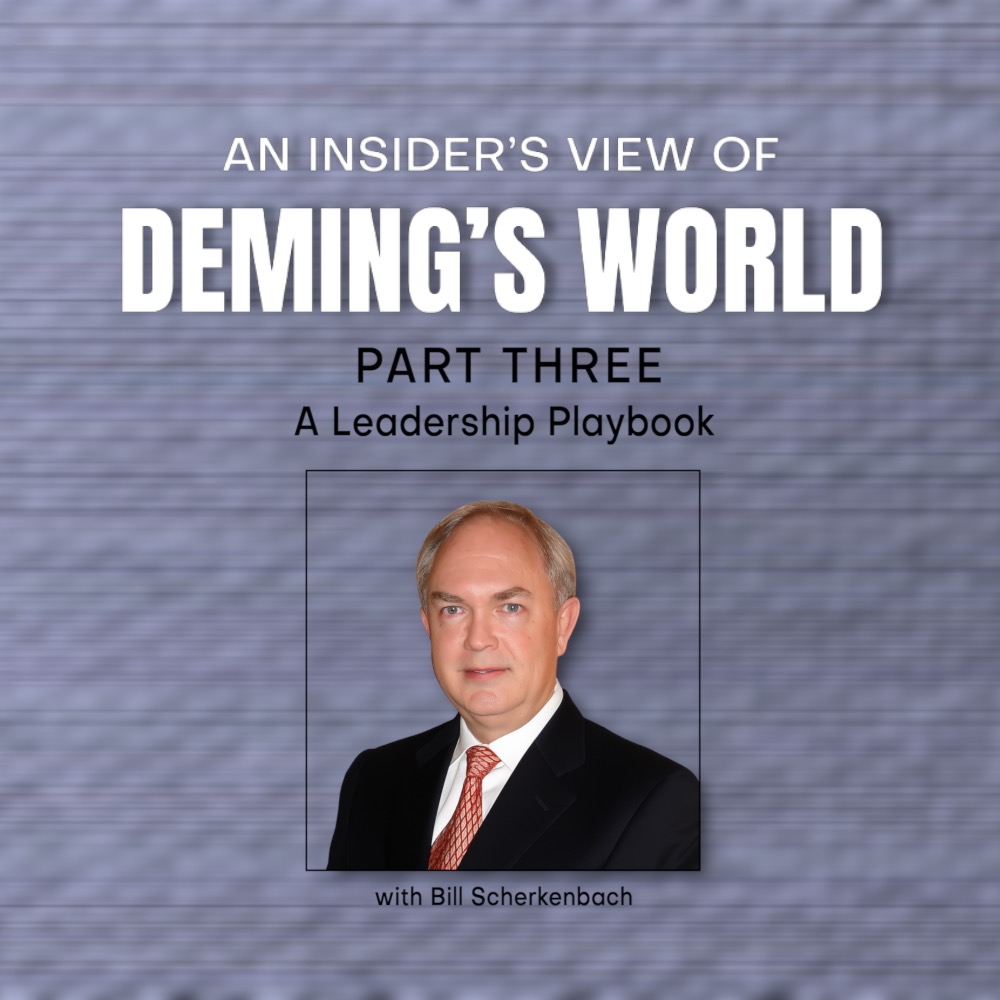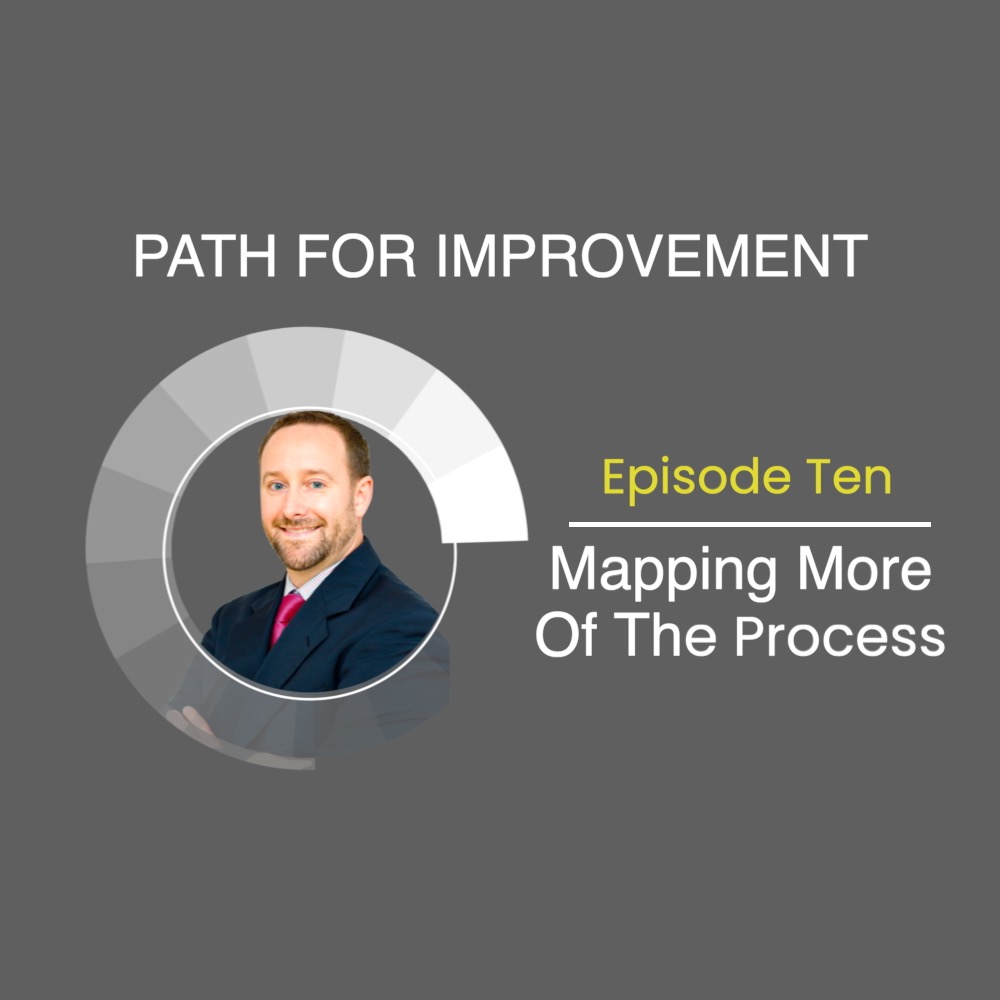Commit to Transformation: Deming in Schools Case Study (Part 20)
Description
What does it mean to "commit" to transformation? What does "transformation" mean? In this episode, John Dues and host Andrew Stotz discuss Point 14 of Dr. Deming's 14 Points for Management - with John's interpretations for educators.
TRANSCRIPT
0:00:02 .2 Andrew Stotz: My name is Andrew Stotz, and I'll be your host as we continue our journey into the teachings of Dr. W Edwards Deming. Today I'm continuing my discussion with John Dues, who is part of the new generation of educators striving to apply Dr. Deming's principles to unleash student joy in learning. This is episode 20, and we are continuing our discussion about the shift from management myths to principles for transformation of school systems. John, take it away.
0:00:31 .1 John Dues: Hey, Andrew. It's good to be back. Yeah, we're on principle 14 today, which is Commit to Transformation. So I'll just start by outlining the principle itself. So Commit to Transformation - "clearly define top management's commitment to continual improvement of quality and its obligation to implement the 14 principles, plan and take action to put everyone in the organization to work to accomplish the transformation. Transformation is everyone's job. Start with education for all and positions of leadership." So, basically, we've been through these 14 principles, and the final one is, put it into action, basically. So I think a good place to start is just remembering or recalling what does Deming mean by transformation? And he's saying transformation is a change in state from one thing to another. So we're going from one thing to something completely new, and there's these 14 principles that help us get us there.
0:01:34 .9 JD: And of course, when Deming was talking, he was talking about the prevailing system of management and changing into this new system of management and about this sort of, older version, this prevailing style from 30 years ago, which still is the prevailing style today. He said something that was really interesting. He said, it's a modern invention that cedes competition between people, teams, departments, students, schools, universities. And so when... What he is really saying is that when you transform your organization, you work together as a system. And he is advocating for cooperation and transformation. And I think of course, people are gonna say, yes, absolutely, we need to cooperate. And that's, that's the way that everybody wins. But in reality, I think that's not always what's happening in organizations because I think what you need in order to go about this switch is what Deming called Profound Knowledge.
0:02:41 .5 JD: And most people don't have an understanding of, of what that is. So what happens I think is that the prevailing style of management, it's rooted in those management myths we've talked about before we started the principles. And it's sort of this false foundation for your organization. But that's where I think most people, people are. And so part of this commitment is then if we're gonna commit to transformation, there's some things that leaders have to realize, and then there's some steps you have to take if you're gonna sort of go down this path. I think the things that you have to realize as a leader, and these are things that are true for me as I continue this process and my organization is number one, there's gonna be a struggle. There's gonna be this struggle over every one of the 14 principles because it's so different from what we're doing today.
0:03:39 .1 JD: I think another thing we're gonna have to realize is that this can't be one or two people at your organization. The entire leadership structure at your organization, it's gonna have to be educated in this new way of thinking, and then you're gonna have to bring along the entire organization. And this can be a challenge because if you are the person doing this at your organization, you very well may be fairly new to this new way of thinking, this new philosophy yourself, unless you've brought in someone externally to help you through this. And even if you do that probably for a good portion of the time, you're gonna have to be leading this before you may be feeling like an expert yourself. And that was definitely true in my case. But I think the emphasis in this initial introduction is that you gotta get that system's view and you have to help people understand the theory of variation.
0:04:43 .0 JD: So that has to be sort of initial part of that introduction. And then of course, you have to take your organizational context into account and so how this sort of rolls out or plays out, it's certainly gonna vary by size of organization, by organizational type. But the good thing is, is regardless of size or type of organization, industry, sector, whatever, Dr. Deming offered several steps to get started in this process. So I think maybe as a start to how you commit to the transformation, if you wanna go down this route, it might be helpful to sort of outline those steps first.
0:05:24 .8 AS: Definitely. And it just, the idea of everybody, being committed to the transformation, like this isn't something where you can say, well, maintenance department doesn't wanna do it. [chuckle]
0:05:36 .4 JD: Right.
0:05:38 .3 AS: Or the third grade teachers don't wanna do it, but the sixth grade do. So that's... Of course things can start in kind of piecemeal as they they go, but it is a true transformation. The other thing that's interesting is if you have a situation where you have been through a transformation as a unit at a school or as a company, it's also possible that a new person could come in and destroy that transformation real fast. And I have an example of a company that I've experience with where they had implemented the Deming principles to an extreme level, and the CEO resigned eventually. He was older, a new one came in and he said, I'm not in that school, I'm not in that camp. I got a new idea. I got a different idea. And it went right back to the prevailing system of management.
0:06:35 .9 JD: Wow. That's really interesting. On the first point, I think, you're not necessarily gonna get all the departments or everybody at once. Obviously it's gonna be a process. On the second point, I think that actually is a good segue into step one because basically what he says, and I've translate this for education environment or education audience, but he basically says the school board and the superintendent have to study the 14 principles. Understand them, agree on a strategic direction, and then make a deliberate decision to adopt and implement the new philosophy, so why bring this up now? As I follow on to your comment there is that it seems to me that well, assuming that this was a company that had a board, then what that board should have done is include something about the System of Profound Knowledge and the job description for the new CEO. That's interesting that they didn't make that a point of emphasis.
0:07:41 .5 AS: I think what's fascinating to me about it is that I think on the one hand, cooperation and working together and not living in an environment of fear is kind of our normal state, I would argue, but society just pushes us in so many different ways, that all of a sudden you find yourself in a very different state. And another example of that is how KPIs have taken Thailand in particular by storm, and now all of a sudden you have people who have been very cooperative in the way that they work together, all of a sudden pitted against each other, and it's so painful for them, because it's not the way that they naturally operate.
0:08:33 .5 JD: Interesting.
0:08:35 .3 AS: And so yeah, it's just... I think you gotta work. And I guess the thing you're saying about the board is that you really gotta work to make sure that this is something precious, and you could lose it in a blink of an eye if you don't...
0:08:52 .4 JD: Yeah, yeah, and I'm not hiring a CEO obviously, but I have started including... I don't use System of Profound Knowledge, I don't use that terminology when I write job descriptions for people on my team, but what I do say is, what we're looking for is someone that can think in systems, understand variation and data, run small experiments to find out what works and do that with sort of like while working with people in a cooperative fashion, so I've sort of incorporated the four elements of the System of Profound Knowledge in the job descriptions for people that I'm hiring on my team, so then when I actually do use System of Profound Knowledge, describe the elements once they're on board, it's not a surprise 'cause it was a part of that hiring process. And part of that, even the job description itself, but step one basically is so that, you know, if you do have it at your organization, it includes both board and sort of the senior leadership being bought into that philosophy and that's not a guarantee, b

























